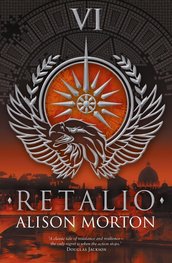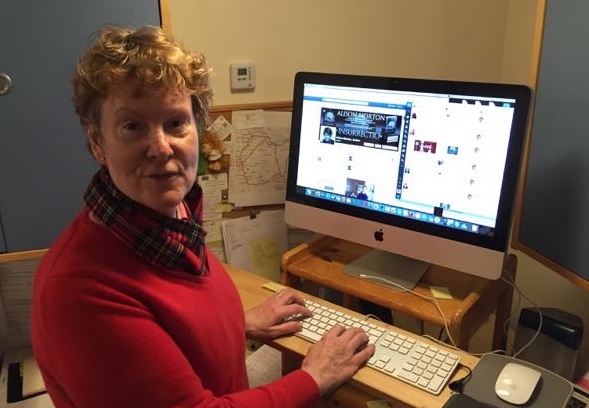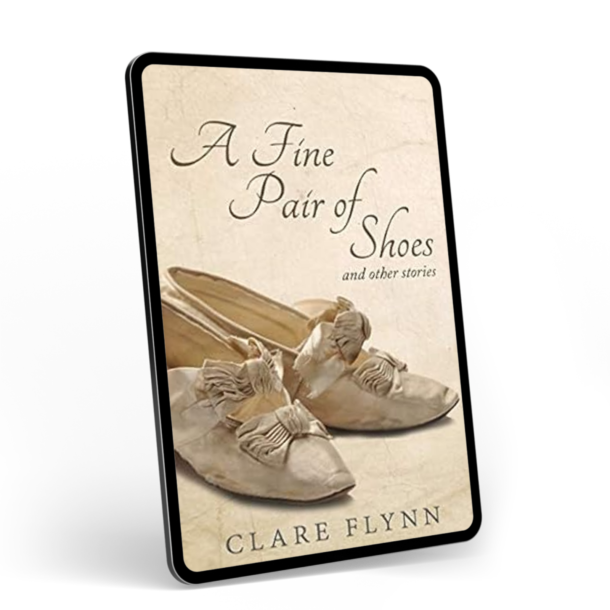My guest today is author Alison Morton. Alison lives in France and is crazy about all things Roman. A lifetime of reading crime novels and her six year career in the military has led her to combine her passions in the creation of a series of novels set in a fictional continuation of the Roman empire.
Tell me about yourself – where do you live and what do you do when you’re not writing?
I live in the south of the Loire Valley in France and I’m supposed to be a lady of leisure. Well, that didn’t work once the writing bug bit. And when I’m not scribbling, I’m promoting. I squeeze in a bit of time to do some gardening and walking. Oh, and drinking wine!
Give me a brief picture of your personal journey as a writer?
My first (terrible) draft in late 2009 was triggered by a film full of bad plotting, atrocious continuity and even worse dialogue, never mind that Ewan McGregor was in it. I knew I could do better. That was hubris, of course. Roll forward three years’ worth of professional assessments, courses, conferences, mentoring and a lot of reading and research and I arrived at a point where agents said the writing was intelligent and the concept original, but they didn’t know how to sell it. So I decided to take over my own fate and went indie in 2012, with my first book in the Roma Nova thriller series, Inception. Now there are six.

How do you feed your creative engine? Where do you look, or what do you do, to keep the inspiration flowing?
I’ve been a ‘Roman nut’ since I was eleven and read historical fiction all my life along with crime, thriller and spy stories. I did six years in uniform in a special communications regiment and I firmly believe there should be more women leading the action in fiction. That’s the waterfall gurgling in the background. But I get my best plotting ideas in the shower! I suppose it’s letting the brain relax and work it out for you.
Mark Twain said “Most writers regard the truth as their most valuable possession, and therefore are most economical in its use.” – How much of your own fiction is based on truth?
It’s all made up! Alternative history fiction is necessarily not true, but is speculative fiction with a historical basis. Stories range from the serious counterfactual to the completely bonkers, but I place my stories at the historical end of the scale and use historical logic to develop them.
I don’t think you can alternate history without knowing it, so the research requirement is as heavy, or as fascinating, as for straight historical fiction. You need to know the political and social development, the clothes, manners, customs and values and, of course, the balance of power at the point of divergence, i.e. where the alternative time diverges from the real time line. And the split is permanent so you have to work out what the consequences are and how different or similar the world in the new time line looks.
Tell me about your latest book and why we should all buy it?
Retalio is the third part of the second trilogy within the Roma Nova series. In the first three Roma Nova thrillers Aurelia Mitela is the ‘older stateswoman’ figure, giving the young heroine, Carina, advice and support. But when I was writing the third book I knew I had to go back in time and unearth Aurelia’s closed past and find out her secrets especially her ambiguous role in Roma Nova’s Great Rebellion. The fourth book, Aurelia, turned into a new trilogy with Insurrectio as the second part. Now, RETALIO is the conclusion. That said, all the books are written as standalone reads and early readers new to Roma Nova seem to be enjoying it as such.
 RETALIO is at once a story of resilience and resistance, of the Roma Novan women fighting back. Aurelia leads a group of exiles, organising and supporting them. But more than anything she gives them hope.
RETALIO is at once a story of resilience and resistance, of the Roma Novan women fighting back. Aurelia leads a group of exiles, organising and supporting them. But more than anything she gives them hope.
Running under her public, political fight against the brutal tyrant’s power grab in Roma Nova is her personal struggle with him. Bitter enemies since childhood, both have the will to dominate; one in service to the state and the other requiring the state to serve him. Aurelia is equally torn by her life companion’s choices. Their love is mutual and obvious, but will she put her country before his life?
If you could wave a magic wand and change something about your writing career what would it be?
Starting it earlier!
What comes first – location, plot, characters?
Characters first, but then they are the product of their location, so the two go hand in hand. Plot is the story of those characters and their reactions to the situation they find themselves in, so those two are inseparable. Location and plot? Well the plot needs to be strong whatever the location, but the conditions in the location may fundamentally alter what could be a perfectly respectable, but otherwise mundane plot.

Tell me about your writing day. Do you work to a routine? Do you have a dedicated space to write in? Endless cups of coffee or tea?
‘Chaotic’ is the best description. Normally, i.e. when not promoting a book, I try to write in the morning in half-hour bursts punctuated by cups of tea. Unfortunately, I have a back complaint brought on by a fall from an assault course in my ‘youth’ which limits my sitting down hours. This is not necessarily bad as it makes me move off my bottom from time to time! Then I get another hour in later in the day.
I write in an office we built in the semi-basement of our house, but I often look out of the window for ‘inspiration’.
Anthony Burgess once said “Literature is all, or mostly, about sex”. How true is that of your books?
Emotional and sexual tension is present in all my stories, whether overtly or buried under the surface. Apart from writing about the acknowledged partnerships between characters, I leave it to the readers to make up their minds about any below the surface feelings. In general, where there’s power there’s sex and vice versa which is a gift for a writer!
Who or what has been the greatest help to you as a writer?
Many, many people but I’m not going to do a Hollywood-style list! Two I’ll name: my husband of thirty years who has given me unstinting support despite the fact that he doesn’t completely understand writers’ obsessions, and Denise Barnes, my friend and critique partner who has listened to my ideas, read through my scripts numerous times and given generously of her time. And of course, she ‘gets’ writing.
What has been the hardest thing for you to overcome in becoming an author?
Accepting that not everybody wants to read my books! No, really, learning how hard it is to bring your books to people’s notice. I’m prepared to put in the work, but sometimes I feel like Sisyphus pushing his rock uphill.
If you could pick one of your own characters to spend some time with, who would it be and why?
Aurelia. She’s diplomatic, but tough. She doesn’t have much time for small talk – she’s too busy – yet she’s polite and caring, trying to see underneath what people are saying. She’s sharp as all hell so you’d have a lively conversation. Of the men, I still rather fancy Conrad from the first trilogy; he’s a tough nut, but incredibly sexy. His uncle Quintus is more kindly and urbane, unlike his brother – the glamorous, charming and utterly amoral Caius Tellus, Aurelia’s nemesis.
What are you working on now – or next?
I have several ideas in the pipeline. The first is a novella featuring Carina, the heroine from the first trilogy (partly written), then I might put a Roma Nova short story collection together and possibly the foundation story of Roma Nova. Plenty to go on!
Connect with Alison on her Roma Nova site: http://alison-morton.com
Facebook author page
Twitter
Goodreads
Alison’s Amazon page


0 Comments